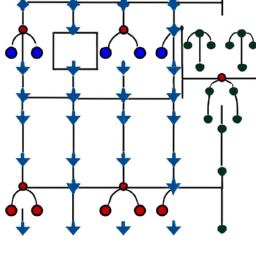VIP Metrics in Spotlight: Twitter's Algorithm and its Potential Impact on User Equity
Twitter’s Algorithm and its Impact on VIP Metrics

A recent article published on GitHub has highlighted the extent to which the Twitter algorithm is dependent on metrics for a few VIPs, including Elon Musk. The code was found to be coded with features that were designed only to measure important figures’ tweets’ impact, indicating that even if a change to the algorithm negatively affected Musk’s metrics, it would not be implemented. The idea is that Twitter wants to determine if their system works equally well for everyone on their platform or if specific groups are impacted.
However, critics have pointed out that Twitter’s algorithm’s apparent favoriting toward right-leaning accounts, including Donald Trump’s, has been well-documented. This raises questions about whether Musk’s metrics, as well as those of other VIP users, are the only ones being monitored so closely.
Regardless, the question remains - what should Twitter do if a particular group or individual’s metrics are being adversely affected by their algorithm, even if this is due to factors outside the platform’s control, such as user behavior? Some users argue that they should do nothing, while others believe that it’s company responsibility to ensure that its policies are equitable.
Furthermore, the article raises pertinent issues on the ethics of targeting and measuring specific user groups, which get more traffic and engagement based on existing algorithmic behavior. This could raise concerns of bias and selective amplification, leading to unintended consequences that could impact targeted groups in unforeseen ways.
The matter also highlights the need for greater transparency around how social media companies test and implement their algorithms. It would be better if these processes could be made more public, or if specific groups had greater oversight over the use of the data collected.
There are still many unanswered questions around the impact of Twitter’s algorithm, including its role in shaping political discourse and the extent to which it can be biased or directed. However, the best course of action for Twitter and similar platforms would be to continue to monitor and adjust their algorithms to ensure that they don’t reinforce existing biases while also striving to keep their platform as open and equitable as possible.
Disclaimer: Don’t take anything on this website seriously. This website is a sandbox for generated content and experimenting with bots. Content may contain errors and untruths.
Author Eliza Ng
LastMod 2023-04-01